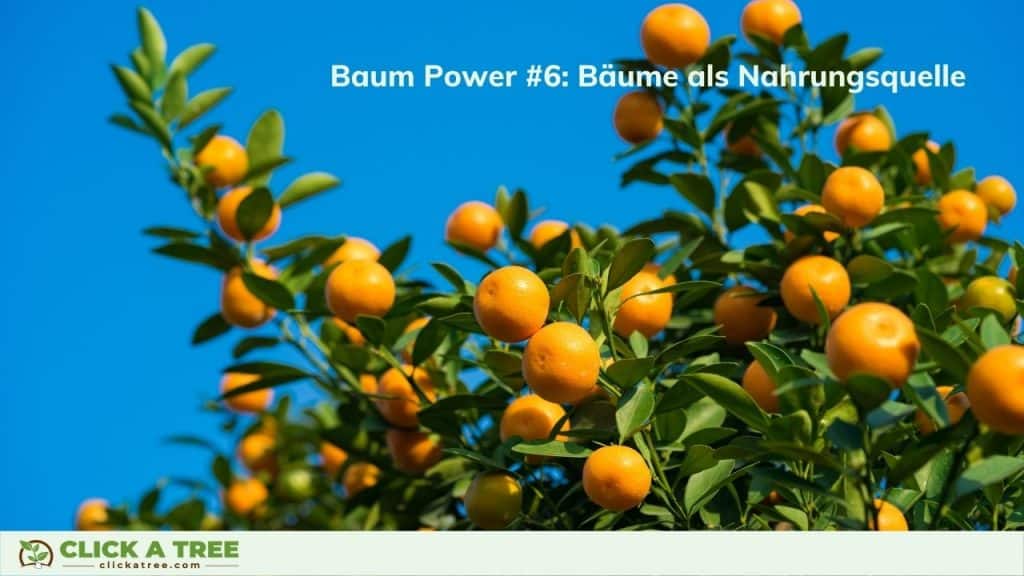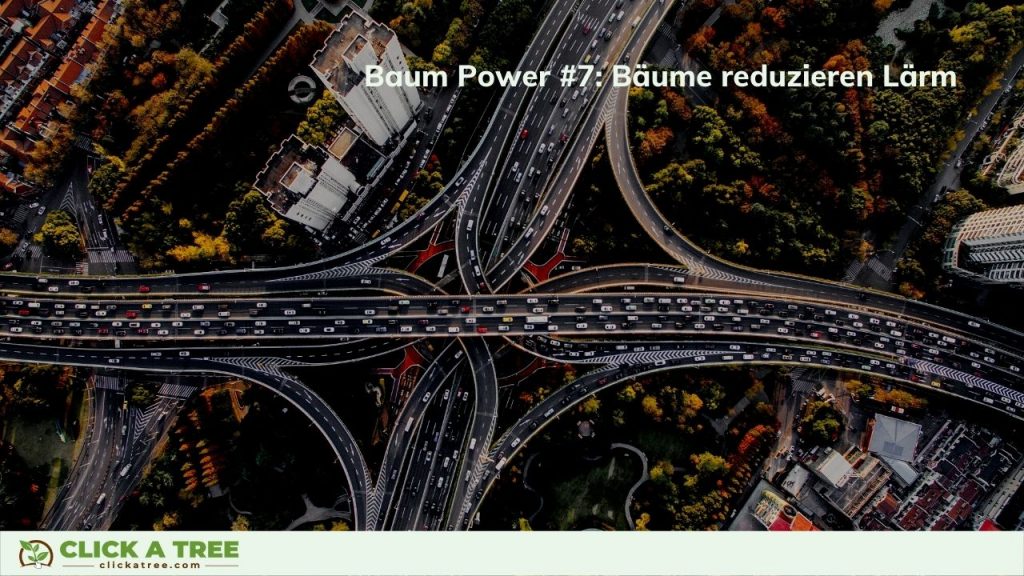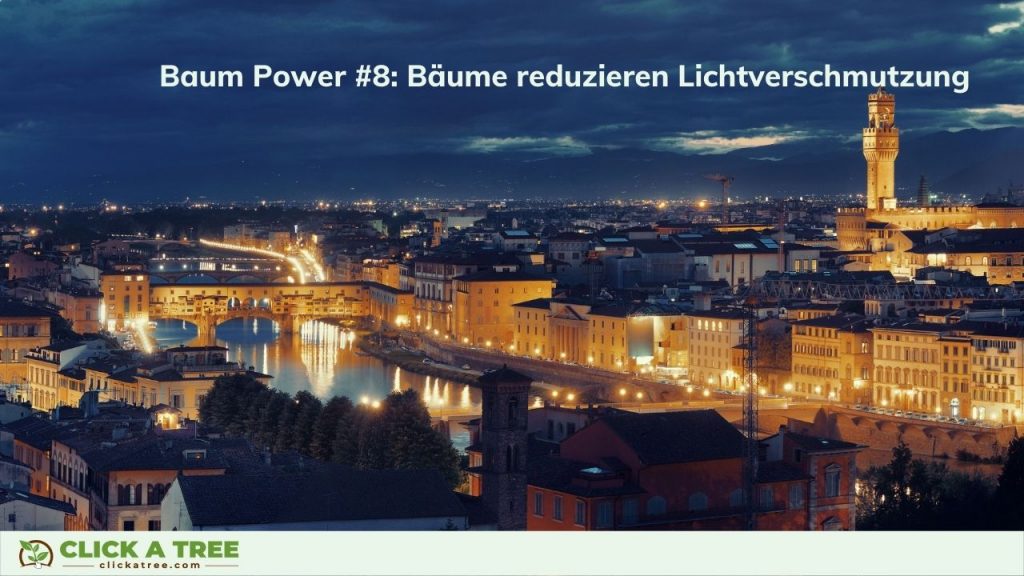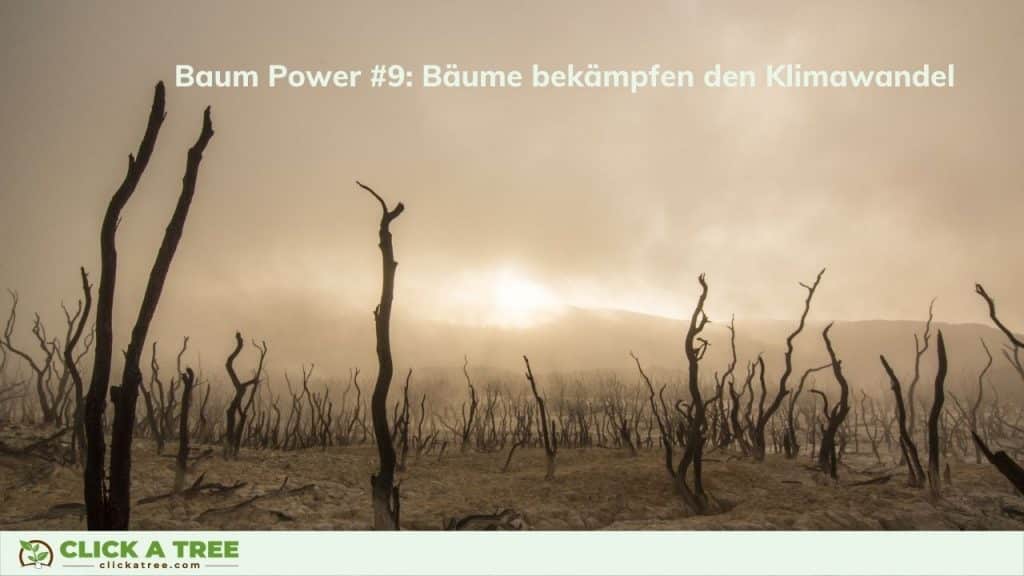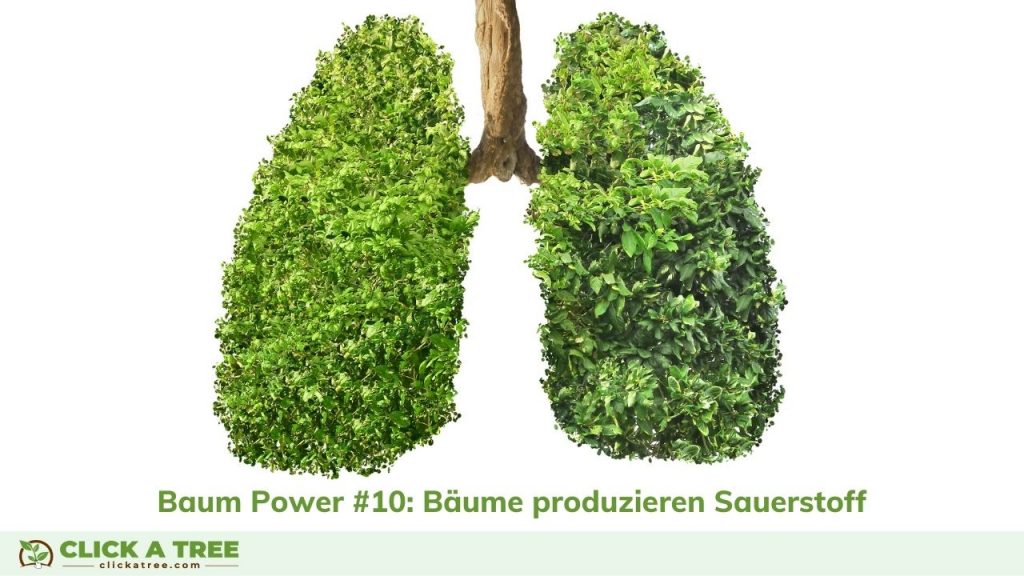Why are trees important?
11 incredible reasons
- AutorIn: Chris Kaiser
- Datum:
- Kategorie: Hacks, tips, knowledge
Share with your community on LinkedIn now:
Whether elegant willow, proud oak, tall pine or scraggy mangrove – although trees are so mighty and diverse, we hardly notice them in our everyday lives. While we spend most of our time looking down, we forget to look up. Yet there are so many reasons why trees are great and vital and why we should pay much more attention to them.
Whether elegant willow, proud oak, tall pine or scraggy mangrove – although trees are so mighty and diverse, we hardly notice them in our everyday lives. While we spend most of our time looking down, we forget to look up. Yet there are so many reasons why trees are great and vital and why we should pay much more attention to them.
Are you wondering why all this? Here are our 11 reasons (in unweighted order) why trees are simply vital.
1. trees regulate the water cycle
The water cycle is the process by which water circulates on the earth. After it falls to the ground as rain, it is absorbed by trees and other plants and released back into the air through transpiration. A single tree that “drinks” continuously transports between 950-1500 liters of water back into the air every day.
This is what makes trees so important for optimum humidity regulation. It also keeps the water cycle in balance, which provides us with fresh water and keeps us alive.
Nature has developed its own rhythm of the water cycle. Deforestation disrupts this cycle immensely and puts our water supply (which accounts for only 3% of the total water on earth) at risk. So far, so good. Now there are still 9 more reasons why trees are great.
2. trees create jobs
From protecting the rainforest to planting trees, from harvesting to biological and botanical research. Trees create a lot of jobs. Chris spoke to Business Traveller about these jobs.
Work in the countryside has existed for as long as there have been people. But as with many other physical jobs, it is mostly prevalent in low socio-economic areas. Without trees, it would be almost impossible to supply the inhabitants of many small, often rural communities.
Now the argument could be made that deforestation also creates jobs. However, this type of employment is not sustainable in the long term. Once the tree is gone, so is the work. The conservation and reforestation of forests account for the majority of work with trees worldwide. We need to protect these jobs for people whose lives depend on them. Better still – create more jobs.
3. trees are an important habitat for wild animals
Surely we don’t need to explain why trees are great for wildlife too, do we?
Forests serve as a natural habitat for a large number of birds, insects and mammals. These creatures have adapted to their environment over centuries and are dependent on it.
While one might initially think of large or exciting animals (such as elephants, tigers, gibbons, macaques or hornbills), a single tree is home to hundreds, if not thousands of other small creatures. Snakes, frogs, millipedes, ants, termites, spiders, beetles, moths – they all depend on their home, the trees.
It is assumed that continued deforestation will wipe out 28,000 species over the next 25 years. Many of them would disappear from the face of the earth without ever being discovered.
4. trees improve soil quality
Trees improve the quality of the soil around them in many ways. This enables them to filter carbon and other harmful substances from the earth. And that allows other plants to thrive.
High quality soil should not contain more than 2% carbon. In densely forested regions, this value can be as low as 0.05%. In fact, the harvest can be doubled on land surrounded by trees. This works because the roots clean the soil. And the better the yield, the less land is needed to feed the people.
Trees also release important minerals into the soil as they shed their leaves. This can be decomposed into mulch.
And finally, trees improve soil quality by drawing nutrients from the depths to the surface through their powerful roots. This in turn makes the soil much more nutritious for other plants (including crops).
In short, if we want good soil for agriculture and biodiversity, we need to take care of our planet’s trees.
5. trees prevent soil erosion
Deforested areas are much more susceptible to desertification. With their solid trunks and dense leaves, trees form a natural barrier against wind and flooding. This barrier weakens natural forces and prevents bad weather from turning into natural disasters that destroy large areas.
In the Philippines, we are concentrating on planting mangrove trees. These trees form a natural protection for the land.
Tree roots have the important function of holding the soil together and preventing erosion. In deforested areas, without them there is nothing to hold the soil in place. The speed of incoming winds or monsoons can therefore not be slowed down. In the event of sustained strong winds or rain, all the loose soil is swept away and the area is transformed into a quasi-desert.
6. trees as a source of food
Trees are a natural source of many essential foods. It is common knowledge that the world’s population would have more than enough to eat if everyone ate a vegan diet.
We can obtain many nutrients from trees alone. The range extends from nuts and fruit to syrup made from flowers and resins. Spices made from aromatic barks such as cinnamon are also included. Trees are an incredibly rich source of food for humans.
And hey – with the firewood they provide, we can prepare food that would otherwise be indigestible for us. One of the many reasons why trees are great is that they give us so many vital things.
Plant a tree today:
7. trees reduce noise
Just as trees combat air pollution, they play an important role in reducing noise pollution. Noise is a major effect of urbanization, traffic and industrialization. Not only is it a nuisance for humans, it also has devastating effects on wildlife.
Noise caused by humans interferes with animal sonar and navigation systems. On the other hand, it can disrupt entire ecosystems. For example, some breeding birds do not nest in areas with higher noise pollution.
The foliage of the trees has a sound-absorbing effect. By buffering the volume of ambient noise, the wildlife is protected from noise. Noise produced by people.
8. and light pollution
Not only as a buffer against noise, foliage also serves as a barrier against unwanted light pollution.
Just like noise, light pollution in cities is more than annoying. It also disturbs animal habitats. As nocturnal mammals, species such as birds, moths and badgers are dependent on a daily cycle of light and darkness. This regulates their internal clock and helps them with orientation and
Foraging.
Newly planted trees help to reduce the effects of pollution around the world.
9. trees combat climate change
One factor that influences global warming and climate change is the level of carbon dioxide in our atmosphere. Carbon dioxide is a greenhouse gas that is known to trap heat. On a rapidly warming planet, the excess carbon dioxide produced by humans is literally trapping heat in our atmosphere.
When a tree grows, it absorbs carbon dioxide from the air in a process known as photosynthesis. It stores carbon in the wood and releases oxygen molecules. For this reason, forests act like giant filter systems. Trees remove greenhouse gases from the air and only release them again when they are burned or composted back into the soil.
For this reason, deforestation has two negative effects. The natural CO² filters are not only removed, they are often burned afterwards, releasing the carbon they have stored back into the atmosphere.
When a tree is fully grown, it hardly filters any carbon dioxide from the atmosphere. Less new wood is produced and no more carbon is needed. With responsible forest management, older trees can be carefully felled to absorb the maximum amount of carbon from the air. This creates a “carbon sink”.
Trees are crucial in the fight against climate change. Without the world’s forests, we would have no chance.
10. trees produce oxygen
There is a lot of truth in the saying that the Amazon rainforests are the green lungs of our planet. We already know how trees filter CO² from the air. An additional advantage of trees is that they produce oxygen as a by-product. Trees not only remove unhealthy air, they also replace it with clean air.
Considering that the human body is made up of two-thirds oxygen, that’s pretty good news! Without a constant supply of oxygen, our days would be numbered. And since photosynthesis is our greatest source of oxygen, we should do everything we can to protect our trees!
11. healing trees
You don’t have to be a scientist to notice the difference when you walk into a forest. Ten minutes ago you may have been stressed, worried about work and your responsibilities, but as soon as you enter the forest, it’s like entering a different world.
You become calmer, your breathing deepens and your thoughts no longer race so much. Trees heal our body, mind and soul.¹
As you can see, trees are not only important for the planet and the animal world, but also for us humans. You, me, we all benefit from trees. Help us plant 100,000 trees this year! Choose your preferred location and plant a tree today.
You may also be interested in: 40+ tips for more sustainable companies.
Let’s create forests!
Do you agree that trees are great and vital?
Then let’s create forests together! They play an important role in the future of our planet, which is why it is so important to protect them.
We can do this by participating in reforestation programs, fighting deforestation, sourcing food, paper and wooden items sustainably and working to reduce our carbon emissions. Small changes make a big difference.
And while we’re on the subject of small changes, sign up directly for our GROW newsletter. It only takes a moment and we plant a tree as a thank you.
First small change: Make our tourism brand B’n’Tree the standard for your travel bookings. Whether for business trips or annual vacations: for every booking that starts on clickatree.com/bedandtree, we plant a tree – free of charge!
Second step: Tell your friends and family about us. Small changes can make a big difference. Many small changes made by different people make an even bigger difference. Tell everyone a few reasons why trees are great and let us know what you think about trees on Facebook. Share this article with your friends:
Thirdly – and last but not least: plant more trees! Although trees are incredibly great, planting trees costs less than a menu at McDonald’s. But they definitely last longer. If you’re not traveling anywhere, you can always plant trees on Click A Tree.
You might also be interested in this: My CO2 footprint – 7 simple hacks to reduce emissions






